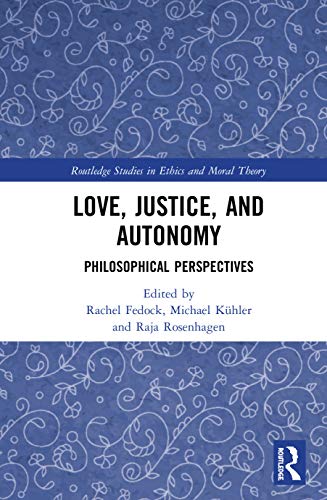

Most ebook files are in PDF format, so you can easily read them using various software such as Foxit Reader or directly on the Google Chrome browser.
Some ebook files are released by publishers in other formats such as .awz, .mobi, .epub, .fb2, etc. You may need to install specific software to read these formats on mobile/PC, such as Calibre.
Please read the tutorial at this link. https://ebooknice.com/page/post?id=faq
We offer FREE conversion to the popular formats you request; however, this may take some time. Therefore, right after payment, please email us, and we will try to provide the service as quickly as possible.
For some exceptional file formats or broken links (if any), please refrain from opening any disputes. Instead, email us first, and we will try to assist within a maximum of 6 hours.
EbookNice Team

Status:
Available0.0
0 reviewsPhilosophers have long been interested in love and its general role in morality. This volume focuses on and explores the complex relation between love and justice as it appears within loving relationships, between lovers and their wider social context, and the broader political realm. Special attention is paid to the ensuing challenge of understanding and respecting the lovers’ personal autonomy in all three contexts.
Accordingly, the essays in this volume are divided into three thematic sections. Section I aims at shedding further light on conceptual and practical issues concerning the compatibility or incompatibility of love and justice within relationships of love. For example, are loving relations inherently unjust? Might love require justice? Or do love and justice belong to distinct moral domains? The essays in Section II consider the relation between the lovers on the one hand and their broader societal environment on the other. Specifically, how exactly are love and impartiality related? Are they compatible or not? Is it unjust to favor one’s beloved? Finally, Section III looks at the political dimensions of love and justice. How, for instance, do various accounts of love inform how we are to relate to our fellow citizens? If love is taken to play an important role in fostering or hindering the development of personal autonomy, what are the political implications that need to be addressed, and how?
In addressing these questions, this book engenders a better understanding both of conceptual and practical issues regarding the relation between love, justice, and autonomy as well as their broader societal and political implications. It will be of interest to advanced students and scholars working on the philosophy of love from ethical, political, and psychological angles.